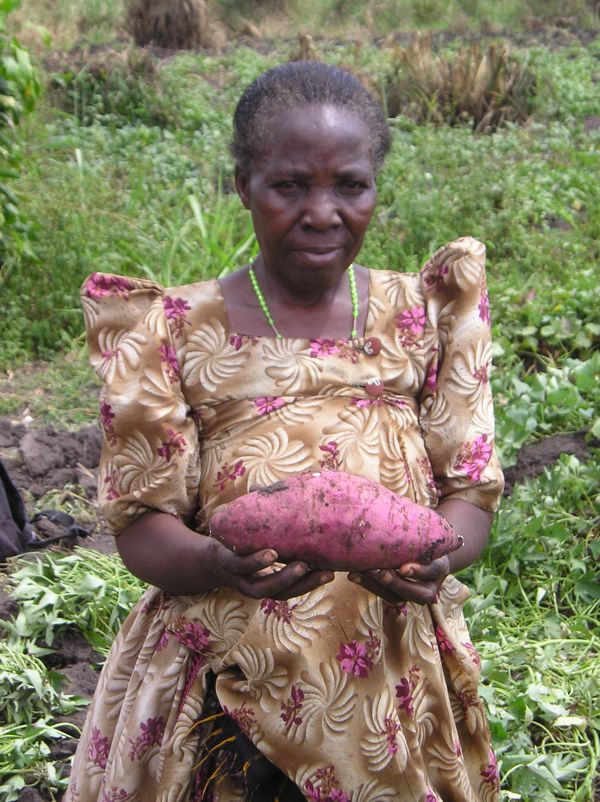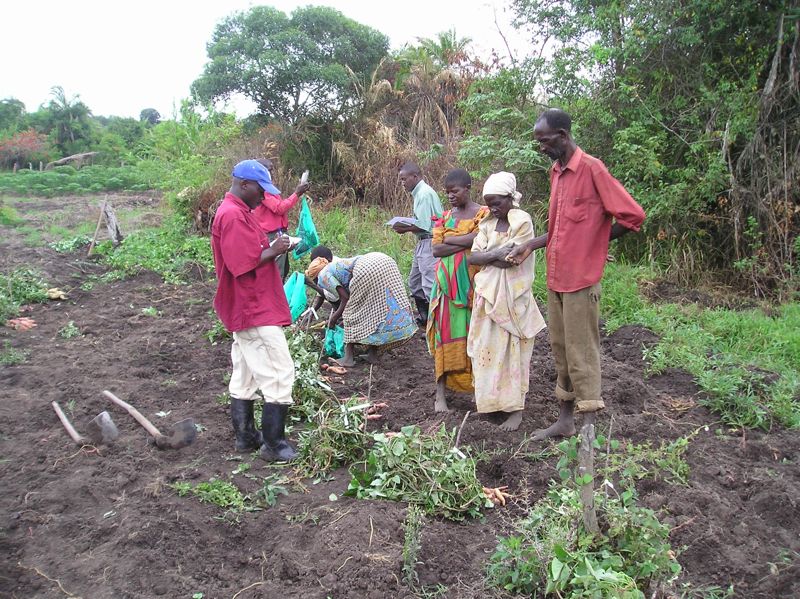
Participatory plant breeding (PPB) is an approach, developed over the last few decades, in which farmers and researchers work together closely, usually in the farmers′ environment and each leading in their area of expertise. It is particularly appropriate for developing new crop varieties for marginal agro-ecologies and for poorer farmers. Sweet potato is a crop grown mainly by poorer women farmers in Africa, primarily in their gardens as a food crop but also for minor trading.
NRI, the Ugandan Sweet Potato Program and Ugandan farmer groups, mainly Tusitukire wamu Kabulanaka Farmers′ Association and Balikyewunya Farmers Group, have been working together since 2003 to breed new sweet potato varieties, the researchers providing farmers with access to thousands of seeds of their elite crosses and the farmers contributing their land, time and expertise. The UK DFID provided financial support throughout including now through its SARID programme. The work started paying off a few years ago when farmers identified a robust, high yielding clone with attractive, highly marketable roots. These sell at a big premium in the local markets and this has also led to extensive sales of planting material, a completely new market for them. As a result, group members are already seeing big improvements in their standard of living, reporting more money for school fees, better food [improved health], better clothes and some have even bought building plots in Kampala. They call this new variety Tomulabula, meaning 'Don't make anyone aware [that it is so good]'. This year, it obtained the official accolade — it was approved for release in Uganda as NASPOT 11, the first ever release of a PPB-bred sweet potato variety.


